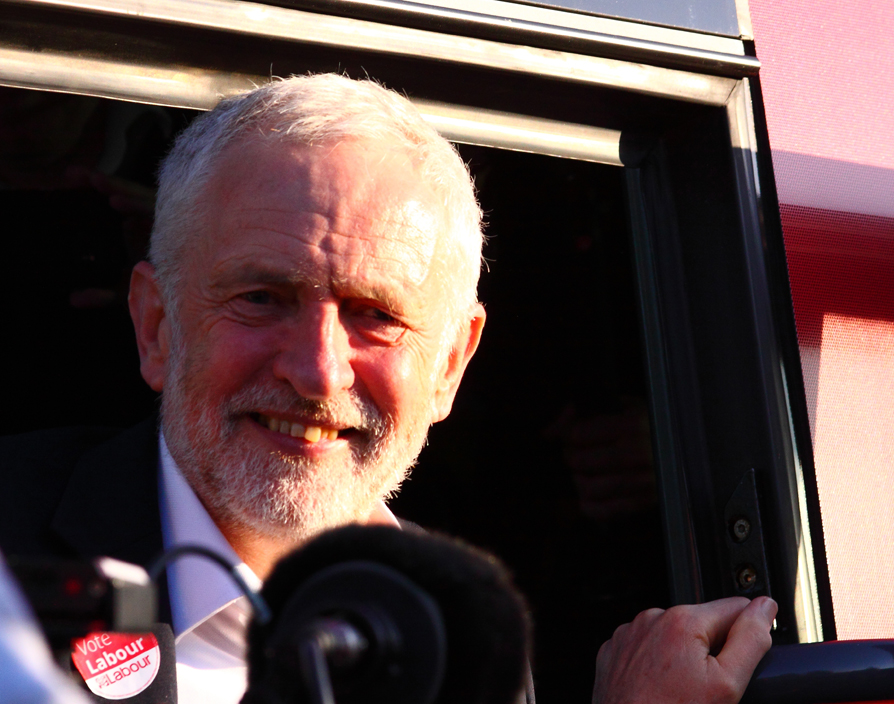Photo credit: Victoria M Gardner/Shutterstock.com
Politics is about a group of passionate individuals in local communities working collectively for a common goal and brand. Sound familiar? That’s probably because franchising and politics share more in common than first meets the eye. Whether your political hue is blue, red, yellow, purple or green – and regardless of whether you’re rejoicing or demoralised by the result – there are important lessons to be found for franchisors from a general election campaign that ended in surprise.
1. Leadership matters
If I’ve learned one thing from years of seeing the best being recognised at the bfa‘s awards, it’s that leadership is an inherent quality found in all successful franchisors. Leadership can take many forms: it can be calm and considered – Sophie Atkinson from Autosmart, the vehicle-cleaning franchise, springs to mind – or bold and ambitious like care franchise Home Instead Senior Care‘s Trevor and Sam Brocklebank. Equally, it can be about having a leader whose personality pervades throughout the business, as Rachel Ray’s does at Bright & Beautiful, the eco-friendly cleaning franchise.
It’s also a quality our political representatives need to display and, as the general election campaigns have shown, open and effective communication matters. The Conservatives foundered after Theresa May began to look less like the soundbite the party had focused on. Failing to take part in a TV debate with other leaders and confusion over social care policy saw her personal ratings tumble according to separate polls by Ipsos MORI and Opinium. In contrast, Jeremy Corbyn’s campaign turned sharply in the other direction because of what was perceived as a greater willingness on his part to engage directly with voters and counterparts.
Whether it’s in politics or franchising, people gravitate towards leaders. They’re more likely to buy into ideas put forward by franchisors who show strength from the front and have a clear vision that cascades down through their team. Just ask the voters.
2. Social media has increased its sway
Of the UK’s nine national daily newspapers to endorse a party, only two – the Guardian and the Mirror – didn’t back the Conservatives. But despite this, Labour confounded expectations – and the early polls. A large part of the reason why can be seen by analysing how the two main parties used social media. A few days before the election, Labour had added 61% more followers on Facebook since campaigning began, while the Tories lagged behind with a 6% increase. More importantly, engagement rates for Labour were streets ahead. On Twitter, Corbyn tweeted 10 times as frequently as May and received almost twice the engagement levels (favourites and retweets) per tweet. And social media shares, an important metric, accounted for 30% of Labour’s engagement compared with 19% for the Tories.
Social media’s role in helping Labour make gains just shows how powerful a tool it can be and many franchises are already using it to raise awareness. For example, when the bfa posted a story about the charity efforts of Puddle Ducks, a franchise that offers baby-swimming lessons, the post reached 30,000 people on Facebook – the equivalent of an enviable regional newspaper circulation. At the time, the bfa’s Facebook account was relatively new and had a little over 200 followers but word got out thanks to a number of Puddle Ducks franchisees sharing the post with their local audiences.
By encouraging their network to engage on social media – as Labour did so successfully – and publishing content that resonates with readers, franchisors have more power than they might realise to raise awareness of their business.
3. Know your audience and target them with straightforward messages
Regardless of how well-received they ended up being, you can say one thing for sure: all the election campaigns were founded on clear and well-targeted messages. Labour’s manifesto included popular anti-austerity policies and extra funding for public services. The Conservatives focused on strength and the upcoming Brexit negotiations. Meanwhile, the Liberal Democrats looked to appeal to Remain voters with the promise of a second referendum and the Scottish National Party focused on Scottish independence. Even if you actively tried to avoid the election coverage, there was no mistaking what the headline messages were and who they intended to appeal to.
It was only when the messaging started to get a bit muddled that the campaigns really stumbled. Would the Conservatives have a cap on social care costs or not? Would Corbyn be willing to launch a nuclear strike if absolutely necessary? The leaders weren’t always able to maintain that clarity.
Drawing on these lessons from the campaign trail, franchisors can make sure their messages resonate by identifying their target audience, understanding people’s aspirations and being clear and consistent with what they say. Trying to appeal to everyone and ending up not appealing to anyone is all too common. But 50 good leads with a high conversion rate is better than 500 awful ones, financially and emotionally.

Paul Stafford
Having been the bfa's PR manager for over four years, Stafford knows a thing or two about the world of franchising. And in his current role as head of communications at Chantry, he helps businesses get to grips with creating killer content and see results from highly targeted online marketing campaigns.

Paul Stafford
Having been the bfa's PR manager for over four years, Stafford knows a thing or two about the world of franchising. And in his current role as head of communications at Chantry, he helps businesses get to grips with creating killer content and see results from highly targeted online marketing campaigns.


































